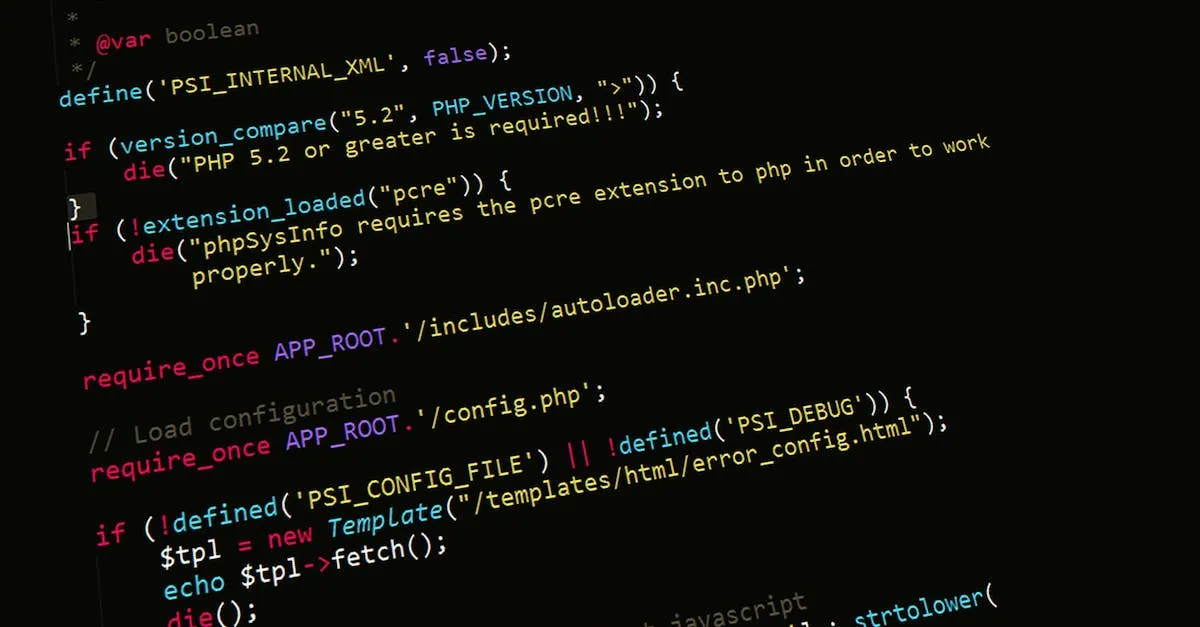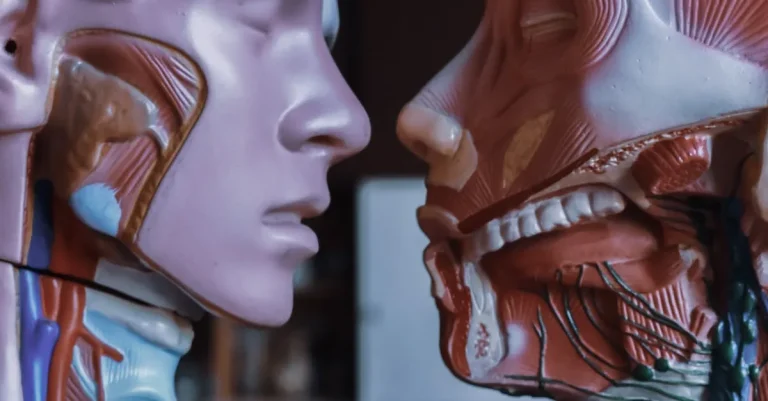Computer Science Vs Web Development: Which Career Path Is Right For You?
If you’re interested in a technology career, you may be debating whether to pursue computer science or focus specifically on web development. Both fields involve coding and building digital systems, but have key differences in their focus and skill requirements.
In short, computer science is the broader study of computation, algorithms, and software, while web development focuses on building websites and applications specifically for the internet and browsers.
Computer science develops foundational knowledge, while web development is focused on practical coding skills.
This in-depth guide will compare computer science and web development across factors like typical curriculum, career options, required skills, salaries, work environment, and more. Whether you’re choosing a college major or considering careers, understanding these key differences will help determine which tech path is the best fit for your interests and professional goals.
Curriculum and Coursework Comparison
Computer Science Core Courses
Computer Science programs typically cover a wide range of topics to provide students with a strong foundation in the field. Core courses in Computer Science often include subjects such as:
- Programming languages (Java, C++, Python)
- Data structures and algorithms
- Computer architecture and organization
- Operating systems
- Database management systems
- Software engineering
- Artificial intelligence
- Computer networks
These courses focus on developing a deep understanding of fundamental concepts and principles in computing, which are essential for building complex software systems and solving challenging computational problems.
If you are passionate about the theoretical aspects of computer science and enjoy solving complex algorithms and mathematical problems, pursuing a career in computer science might be the right choice for you.
Web Development Core Courses
Web Development programs, on the other hand, have a more specialized focus on building and maintaining websites and web applications. Core courses in Web Development typically include subjects such as:
- HTML and CSS
- JavaScript and front-end frameworks (React, Angular)
- Server-side scripting languages (PHP, Python, Ruby)
- Database integration and management
- Web security and performance optimization
- Responsive web design
- Content management systems (WordPress, Drupal)
These courses are designed to provide students with the necessary skills to create visually appealing and functional websites and web applications. Web development programs often emphasize practical, hands-on experience in building real-world projects.
If you are more interested in the hands-on aspects of building websites and enjoy working with different web technologies, a career in web development might be a better fit for you.
Overlap in Knowledge
While Computer Science and Web Development have distinct core courses, there is still some overlap in knowledge between the two fields. For example, both disciplines require a solid understanding of programming concepts and logic.
Additionally, both fields often involve working with databases and require knowledge of web technologies such as HTML, CSS, and JavaScript.
Furthermore, as technology continues to evolve, the boundaries between Computer Science and Web Development are becoming more blurred. Many computer science graduates also work as web developers, leveraging their strong technical background to create innovative web applications.
Similarly, web developers often expand their skillset to include more advanced computer science concepts.
Ultimately, the choice between Computer Science and Web Development depends on your interests, career goals, and the type of work you enjoy. It’s important to consider your strengths and preferences when deciding which path to pursue.
For more information on Computer Science and Web Development programs, you can visit https://www.cmu.edu/cs/ for Computer Science and https://www.udacity.com/course/front-end-web-developer-nanodegree–nd0011 for Web Development.
Career Paths and Options
When considering a career in the technology field, two popular options that often come to mind are computer science and web development. Both paths offer exciting opportunities and have their own unique set of skills and job prospects.
Let’s take a closer look at the career paths and options available in these fields.
Computer Science Career Paths
Computer science is a broad field that covers a wide range of topics, including algorithms, data structures, programming languages, artificial intelligence, and more. As a computer scientist, you can choose from various career paths based on your interests and skills.
Some common career paths in computer science include:
- Software Developer: Designing and developing software applications for various platforms.
- Data Scientist: Analyzing and interpreting complex data to gain insights and make informed decisions.
- Network Administrator: Managing and maintaining computer networks for organizations.
- Database Administrator: Designing, implementing, and managing databases for efficient data storage and retrieval.
- Artificial Intelligence Engineer: Developing intelligent systems and algorithms to simulate human intelligence.
These are just a few examples, and the field of computer science offers many other exciting career options. The demand for computer science professionals is high, and the job outlook is promising, with a projected growth rate of X% from 2020 to 2030.
Web Developer Career Paths
Web development focuses on creating and maintaining websites and web applications. This field requires a combination of programming, design, and problem-solving skills. As a web developer, you can choose from various career paths based on your interests and expertise.
Some common career paths in web development include:
- Front-end Developer: Building the user interface and user experience of a website using HTML, CSS, and JavaScript.
- Back-end Developer: Developing the server-side logic and database integration of a website or web application.
- Full-stack Developer: Combining both front-end and back-end development skills to create complete web applications.
- UI/UX Designer: Creating visually appealing and user-friendly interfaces for websites and web applications.
- E-commerce Developer: Building and maintaining e-commerce websites with features like shopping carts and payment gateways.
The web development industry is growing rapidly, and the demand for skilled professionals is high. The job outlook for web developers is expected to grow by X% from 2020 to 2030, making it a promising career choice.
Job Outlook and Salary Prospects
Both computer science and web development offer excellent job prospects and competitive salaries. According to the Bureau of Labor Statistics, the median annual wage for computer and information technology occupations was $X in 2020, with the top 10% earning more than $X.
Similarly, web developers also enjoy attractive salary prospects. The median annual wage for web developers was $X in 2020, with the top 10% earning more than $X.
It’s important to note that these figures can vary based on factors such as experience, location, and industry. It’s always a good idea to research current salary trends and job opportunities in your specific area of interest.
Work Environment Comparison
Computer Science Work Settings
Computer scientists typically work in a variety of settings, including offices, research labs, and educational institutions. They may be employed by large technology companies, government agencies, or universities.
The work environment for computer scientists is often characterized by a collaborative atmosphere, where they work closely with colleagues on projects and research.
Computer scientists also have the flexibility to work remotely, thanks to the advancements in technology. This allows them to work from the comfort of their own homes, coffee shops, or co-working spaces.
Remote work can provide a great deal of flexibility and freedom, allowing computer scientists to manage their own schedules and achieve a better work-life balance.
Web Developer Work Settings
Web developers, on the other hand, have a slightly different work environment. They can work in a variety of settings, including offices, tech startups, advertising agencies, or as freelancers. Web developers often work closely with clients or project managers to create and maintain websites and web applications.
Web developers also have the option to work remotely, depending on the nature of their projects and clients. This flexibility allows them to work from anywhere with an internet connection. Some web developers may even choose to work as digital nomads, traveling the world while working on web development projects.
Work-Life Balance Factors
When it comes to work-life balance, both computer science and web development offer their own advantages. Computer scientists often have more flexibility in terms of working hours and location, which can lead to a better work-life balance.
They can choose to work during their most productive hours and have the freedom to take breaks when needed.
Web developers, on the other hand, may have more control over their workload and project deadlines. This can lead to a better work-life balance as they can manage their time more effectively. Additionally, web developers often have the option to work on freelance projects, allowing them to have more control over their schedule.
It’s important to note that work-life balance can vary depending on the specific job, company culture, and individual preferences. What works for one person may not work for another. It’s crucial to find a career path that aligns with your personal values and priorities.
For more information on work environments in computer science and web development, you can visit the following websites:
- Bureau of Labor Statistics – Computer and Information Technology
- Bureau of Labor Statistics – Web Developers
Technical Skills and Requirements
Computer Science Core Skills
Computer Science is a broad field that encompasses various technical skills. Some of the core skills required for a career in Computer Science include:
- Programming languages such as Java, C++, Python, and JavaScript.
- Algorithm design and analysis to solve complex problems efficiently.
- Data structures and algorithms, which form the foundation for efficient software development.
- Database management to store and retrieve data effectively.
- Operating systems and computer architecture to understand how software interacts with hardware.
- Networking and security to ensure the safety and integrity of systems.
Developing these skills will enable individuals to excel in areas such as software development, artificial intelligence, data analysis, and cybersecurity.
Web Development Core Skills
Web Development focuses on creating and maintaining websites and web applications. Some of the core skills required for a career in Web Development include:
- Proficiency in HTML, CSS, and JavaScript to build visually appealing and interactive websites.
- Knowledge of web frameworks like React, Angular, or Vue.js for efficient development.
- Understanding of server-side languages such as PHP, Ruby, or Python for handling data and server-side logic.
- Experience with databases like MySQL or MongoDB for storing and retrieving website data.
- Knowledge of version control systems like Git for collaboration and code management.
- Search Engine Optimization (SEO) to optimize website visibility and ranking.
Mastering these skills will enable individuals to excel in front-end development, back-end development, or full-stack development roles.
Complementary Knowledge
Both Computer Science and Web Development benefit from additional complementary knowledge. These skills can enhance job prospects and provide a competitive edge. Some examples of complementary knowledge include:
- UI/UX design principles to create user-friendly and visually appealing interfaces.
- Mobile app development for building applications for iOS or Android platforms.
- Cloud computing and virtualization for scalable and cost-effective solutions.
- Machine learning and data analytics for extracting insights from large datasets.
- Agile development methodologies for efficient project management.
- Soft skills such as communication, teamwork, and problem-solving abilities.
By acquiring these skills, professionals can broaden their career opportunities and adapt to the evolving needs of the industry.
For more information on Computer Science core skills, you can visit ACM (Association for Computing Machinery).
For more information on Web Development core skills, you can visit W3Schools.
Education Requirements and Costs
Computer Science Degree Options
If you are considering a career in computer science, there are several degree options available to you. The most common degree is a Bachelor’s in Computer Science, which typically requires four years of study.
Some universities also offer Master’s and Ph.D. programs in computer science for those who wish to pursue advanced research or teaching positions.
A computer science degree curriculum typically includes courses in programming, algorithms, data structures, software engineering, and computer systems. Students also have the opportunity to specialize in areas such as artificial intelligence, cybersecurity, or data science.
To pursue a career in computer science, it is important to have a strong foundation in mathematics and logical thinking. Students should also have a passion for problem-solving and a willingness to constantly learn and adapt to new technologies.
Web Development Degree Options
If you are more interested in web development, there are also degree options available specifically tailored to this field. While some universities offer Bachelor’s degrees in web development, it is more common to find programs in related fields such as computer science, information technology, or web design.
A web development degree curriculum typically includes courses in HTML, CSS, JavaScript, web design principles, and user experience. Students also have the opportunity to learn backend technologies such as PHP, Python, or Ruby on Rails.
Unlike computer science, web development is more focused on the practical aspects of building websites and web applications. Therefore, the emphasis is often on hands-on projects and real-world experience.
Cost of Education
The cost of education for both computer science and web development degrees varies depending on factors such as the institution, location, and program duration. On average, a Bachelor’s degree in computer science can cost anywhere from $20,000 to $50,000 per year in tuition and fees.
Master’s and Ph.D. programs may have additional costs.
Web development degree costs can vary significantly, depending on whether you pursue a Bachelor’s degree specifically in web development or a related field. On average, a Bachelor’s degree in web development can cost between $10,000 and $30,000 per year in tuition and fees.
It is worth noting that there are also alternative education options available in the form of coding bootcamps or online courses, which can provide a more affordable and flexible way to learn web development skills.
These options often have shorter durations and lower costs compared to traditional degree programs.
For more information about computer science degree options, you can visit Top Universities.
For more information about web development degree options, you can visit Bureau of Labor Statistics.
Accreditation and Certifications
Computer Science Accreditation
When considering a career in computer science, it is important to choose a program that is accredited by a recognized accrediting body. Accreditation ensures that the program meets certain standards of quality and rigor, and that graduates are well-prepared for the demands of the industry.
One reputable accrediting body for computer science programs is the Accreditation Board for Engineering and Technology (ABET). It is recommended to pursue a computer science degree from an institution that is ABET-accredited, as this will enhance your credibility and employability in the field.
Web Development Certificates
While a degree in computer science is often preferred for a career in web development, it is not the only path to success. Many individuals choose to pursue web development certificates or bootcamp programs to gain the necessary skills and knowledge in a shorter period of time.
These certificates are offered by various organizations and can provide focused training on specific web development technologies and frameworks. Some well-known certificates in the field include the Certified Web Developer (CIW) and the Microsoft Certified Professional Developer (MCPD).
Obtaining these certificates can demonstrate your proficiency in web development and make you stand out to potential employers.
Ongoing Education
In both computer science and web development, ongoing education is crucial to stay up-to-date with the rapidly evolving technology landscape. It is important to continuously learn and adapt to new programming languages, frameworks, and tools in order to remain competitive in the industry.
This can be done through attending workshops, conferences, and online courses. Additionally, obtaining advanced certifications in specialized areas of computer science or web development can further enhance your skills and career prospects.
Websites like Udemy and Coursera offer a wide range of online courses and certifications that can help you stay ahead in your chosen career path.
Pros and Cons of Each Field
Benefits of Computer Science
Computer Science offers a wide range of benefits for individuals considering a career in this field. One of the main advantages is the vast array of job opportunities available. With a strong foundation in computer science, individuals can pursue careers in software development, data analysis, artificial intelligence, cybersecurity, and more.
This field also offers excellent earning potential, with computer science professionals often commanding high salaries. Additionally, computer science is a constantly evolving field, which means there are always new technologies and challenges to explore, making it an exciting and dynamic career choice.
Downsides of Computer Science
While computer science has many benefits, it is important to consider the downsides as well. One of the main challenges is the level of technical expertise required. Computer science can be a demanding field that requires strong problem-solving skills and a deep understanding of complex algorithms and coding languages.
Additionally, the fast-paced nature of the industry means that professionals must continuously update their skills to stay relevant. The field can also be highly competitive, with many talented individuals vying for top positions.
Lastly, computer science can sometimes involve long hours and tight deadlines, which may not be suitable for everyone.
Benefits of Web Development
Web development offers its own set of advantages for those interested in this career path. One of the main benefits is the high demand for web developers in today’s digital age. Almost every business and organization requires a website, creating a constant need for skilled web developers.
This field also allows for creativity and the opportunity to bring visual and interactive designs to life. Additionally, web development offers flexibility, with many professionals working remotely or as freelancers.
This flexibility can provide a great work-life balance and the ability to work from anywhere in the world.
Downsides of Web Development
While web development has its benefits, there are also some drawbacks to consider. One challenge is the rapidly changing technology landscape. Web developers must constantly adapt to new programming languages, frameworks, and design trends.
This requires a commitment to continuous learning and staying up-to-date with industry advancements. Another downside is the potential for intense competition in the field. With the growing popularity of web development, the job market can become saturated, making it more challenging to stand out from the crowd.
Finally, web development can sometimes involve long hours and tight deadlines, especially when working on complex projects or under pressure from clients.
Conclusion
While computer science and web development have some overlap, they take distinct approaches to the field of computer technology. For those who enjoy theory, algorithms, and software systems architecture, computer science offers immense value.
But for practical coders looking to build interactive websites and web apps, web development is likely the better path.
By weighing factors like work environment, career options, and technical skills, you can determine which specialty aligns best with your talents, interests, and professional aspirations in the tech industry.







